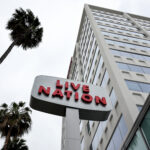Fairfax Financial Holdings, which made record profits last year on the back of U.S. credit default swaps, remains on guard against a depression-type slide in the U.S. economy, its chief executive told shareholders Wednesday.
“We are conservatively positioned,” Fairfax Chairman and CEO Prem Watsa said at the insurance holding company’s annual meeting.
Fairfax has 74 percent of its $19 billion investment portfolio in cash and marketable securities, and does not own mortgage-backed or asset-backed securities. “In the next few years, we think opportunities will come our way to invest this money…right now we’re not reaching for yield,” Watsa said.
“The U.S. economy and U.S. stock markets have begun to decline, that means a recession is coming and now it’s only a question of how long and how deep,” Watsa said.
As securities backed by risky loans have been re-priced globally, banks have run into trouble before the recession hit, rather than after, Watsa noted. “That is why we think of this event for financial markets as one-in-50 (or) one-in-100 years,” Watsa said, drawing comparisons to Japan’s decade of economic and market woes, and the Depression that started with the 1929 stock market crash.
In the current environment, U.S. interest rates can come down further, and high-yield bond spreads to Treasuries have widened significantly, Watsa said. “We haven’t bought these (high-yield) bonds yet in any significant way, but we think the opportunities could be very significant,” Watsa said. “We continue to look at them.”
As for stocks, Fairfax recently bought shares of health-products maker Johnson & Johnson and plans to hold the stock over the long term, the CEO said.
In his letter to shareholders, Watsa said Fairfax bought 5.9 million Johnson & Johnson shares at a cost of $62.29 per share. It has recently been boosting its equity holdings in Canadian media companies as well.
Fairfax, which owns stakes in property and casualty insurers and reinsurance companies, earned $1.1 billion in profit in 2007, partly due to gains on credit default swaps. These are contracts that shift default risk between two investors, or allow investors to bet on the direction of credit markets.
The value of CDSs, especially those related to financial companies, soared in the second half of 2007 as rising subprime mortgage defaults hurt asset-backed securities and other areas of the credit markets.
Fairfax profited from swap contracts on U.S. mortgage lender Countrywide Financial Corp, and bond insurers Radian Group and Ambac Financial, among others.
Watsa credited Brian Bradstreet, fixed-income portfolio manager at in-house investing firm Hamblin Watsa, for coming up with the lucrative CDS strategy back in 2003. Until the end of 2006, the swaps were worth less in the market than they had cost.
In the property and casualty insurance industry, Watsa said business is softening, meaning that prices are going down, so Fairfax’s operating units will write less business.
Its units include Canada’s Northbridge Financial Corp and Crum & Forster and reinsurer Odyssey Re Holdings in the United States.
(Reporting by Lynne Olver; Editing by Peter Galloway)
Was this article valuable?
Here are more articles you may enjoy.

 Walmart to Pay $100 Million to Settle FTC Case on Driver Wages
Walmart to Pay $100 Million to Settle FTC Case on Driver Wages  AIG’s Zaffino: Outcomes From AI Use Went From ‘Aspirational’ to ‘Beyond Expectations’
AIG’s Zaffino: Outcomes From AI Use Went From ‘Aspirational’ to ‘Beyond Expectations’  Live Nation’s Settlement Efforts Stalled Ahead of DOJ Trial
Live Nation’s Settlement Efforts Stalled Ahead of DOJ Trial  Meta Loses Insurance for Defense in Major Social Media Addiction Litigation
Meta Loses Insurance for Defense in Major Social Media Addiction Litigation 